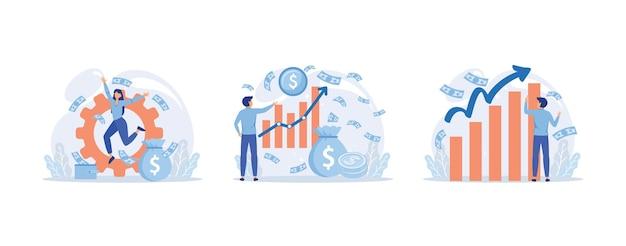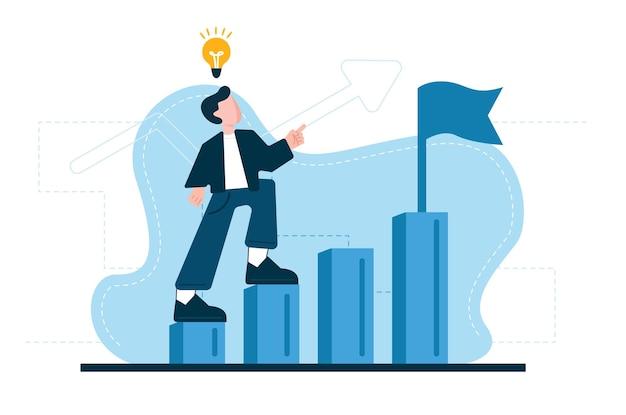Do you ever wonder how some people effortlessly navigate the complex world of economics, making savvy decisions and achieving financial prosperity? At its core, economics is not just a subject in textbooks; it is a crucial life skill that empowers individuals to understand and participate in the intricate workings of the global marketplace.
In this blog post, we will delve into the concept of economic skills and explore why they are essential for both personal and professional growth. Whether you are a student aiming to excel academically, a young professional seeking career advancement, or simply someone curious about the fundamental principles that shape our economy, understanding economic skills will prove to be immensely valuable in your journey towards financial success. So, let’s dive in and uncover the keys to mastering economic skills and gaining a competitive edge in the ever-evolving world of finance and commerce.

What Are Economic Skills
Economic skills are the superpowers that enable individuals to navigate the complex world of finance, markets, and money like a boss. These skills go beyond the ability to balance a checkbook or calculate compound interest; they encompass a wide range of competencies that can help you make smarter financial decisions and excel in both personal and professional spheres. So, buckle up and get ready to unlock the secrets of economic skills!
The Art of Budgeting: Mastering Your Money
Let’s start with the most fundamental economic skill – budgeting. A well-honed budget is the cornerstone of financial success. It’s like having a financial superhero by your side, guiding you through the labyrinth of expenses and ensuring your money is well-spent. With proper budgeting, you can tame your spending habits, save for both short-term pleasures and long-term goals, and avoid financial stress.
A well-crafted budget can be your trusty sidekick irrespective of your income level. It helps you allocate your hard-earned dollars to essentials, pleasures, and savings, allowing you to live within your means without forsaking the joy in life. Whether you’re indulging in a fancy cup of coffee or plotting your next dream vacation, a budget ensures you’re in control of your financial destiny.
The Wizardry of Investing: Building Wealth with Knowledge
Investing is where ordinary mortals transform into financial wizards. It’s like playing a strategic game, but with real money at stake. By acquiring knowledge and understanding the market forces, you can grow your wealth and make your hard-earned dollars work for you.
Diving into the world of investing may seem daunting, but fear not! With the right economic skills, you can brush off the intimidation factor and embark on a path towards financial independence. Whether you choose to invest in stocks, bonds, real estate, or even cryptocurrencies, understanding the principles of risk and reward, diversification, and long-term growth is your ticket to success.
The Sorcery of Negotiation: Maximizing Value in Transactions
In the realm of economic skills, negotiation is the enchanted sword that can slice through inflated prices and secure the best deals. It’s the art of persuasion and compromise that can save you hundreds, if not thousands, on big-ticket purchases and everyday transactions.
To wield the power of negotiation, one must possess a combination of charm, confidence, and a dash of wit. From haggling at street markets to negotiating a salary raise, learning the tricks of the trade can be highly rewarding. So, embrace your inner negotiator, don your armor of preparation, and summon the courage to ask for what you deserve!
The Jedi Mind Trick of Opportunity Cost: Making Trade-Offs Like a Pro
Every decision we make has an opportunity cost. Yes, even the simple act of choosing between a night out with friends or a cozy movie night at home comes with trade-offs. Economic skills help in evaluating these trade-offs and making decisions that maximize our overall satisfaction.
By understanding the concept of opportunity cost, we can evaluate the benefits and drawbacks of different choices and allocate our resources wisely. Should you pursue higher education or enter the workforce? Buy a new car or invest the money? Each choice has its own opportunity cost, and economic skills equip us with the tools to assess the value of these trade-offs.
Economic skills are like a secret power-up that unlock doors to financial success and well-being. From budgeting to investing, negotiation to opportunity cost, these skills empower us to make informed decisions and navigate the economic landscape with finesse. So, embrace the world of economics, arm yourself with knowledge, and let your economic skills be your guide in this ever-evolving, money-driven adventure we call life.

FAQ: What are Economic Skills
Welcome to our comprehensive FAQ guide on economic skills! In today’s fast-paced and ever-changing world, having a solid understanding of economic skills can be incredibly valuable. Whether you’re a student, a professional, or simply someone curious about the subject, this FAQ section will provide you with all the answers you need. So, let’s dive right in!
What is an Effective Student
Being an effective student means mastering the art of learning and studying. It involves having the right mindset, organizational skills, and the ability to manage time effectively. An effective student approaches their studies with dedication, discipline, and enthusiasm. They are proactive in seeking help and constantly strive to improve their understanding and grades.
What are Basic Economics
Basic economics refers to the foundational concepts and principles that form the basis of understanding how the economy works. It encompasses topics such as supply and demand, inflation, market structures, fiscal and monetary policies, and economic indicators. Having a grasp of basic economics allows individuals to analyze and make informed decisions about their personal finances, businesses, and even government policies.
What are the Four Basic Economic Problems
The four basic economic problems are scarcity, choice, opportunity cost, and resource allocation. Scarcity refers to the limited availability of resources in relation to unlimited wants and needs. Choice is the decision-making process individuals, businesses, and governments face when allocating resources. Opportunity cost is the cost of forgoing the next best alternative when making a choice. Resource allocation involves determining how resources should be distributed among different uses.
How can I Study Daily
To establish a daily study routine, create a designated study space that is free from distractions. Set specific goals for each study session and break your study time into manageable chunks. Use effective study techniques such as active reading, summarizing key points, and practicing retrieval through quizzes and flashcards. Regularly review and revise your material to reinforce your understanding. And remember, consistency and discipline are key!
How can I Improve my Memory and Study Skills
Improving memory and study skills takes practice and determination. To enhance your memory, try techniques such as visualization, mnemonic devices, and spaced repetition. Establishing a study routine will also help your brain retain information better. Additionally, engage in activities that promote brain health, such as regular exercise, a balanced diet, and proper sleep. Developing strong note-taking and organizational skills will also vastly improve your study efficiency.
What is the Best Time for Study
The answer to this question varies from person to person. Some individuals are more alert and focused in the morning, while others find that their brain functions better in the afternoon or evening. The key is to identify your peak hours of concentration and schedule your study sessions accordingly. Experiment with different times and find what works best for you. Remember, quality studying is more important than simply putting in hours.
What are the Good Qualities of a Good Student
Good students possess a range of qualities that contribute to their success. These include curiosity, self-discipline, perseverance, organization, and the ability to prioritize. They actively participate in class, ask questions, and seek clarification when needed. They are proactive in their learning, take responsibility for their education, and are not afraid to seek help. Good students also possess strong communication and teamwork skills, as they understand the importance of collaboration.
What are the Roles of Economics
Economics plays several key roles in society. It helps us understand how resources are allocated, how prices are determined, and how people make decisions. Economics provides insights into the functioning of markets, industries, and the overall economy. It helps governments formulate policies to promote growth and stability. Individuals can also apply economic principles to make informed financial decisions and manage their resources effectively.
What are Economic Skills
Economic skills refer to the abilities and knowledge required to analyze, interpret, and apply economic concepts in various contexts. These skills include critical thinking, numerical analysis, data interpretation, problem-solving, and decision-making. Proficiency in economic skills enables individuals to understand and navigate the complexities of the economy, make informed judgments, and contribute to economic growth and development.
What are Some Good Study Habits
Good study habits are crucial for academic success. Start by creating a study schedule that allows for regular and consistent study sessions. Break down your study material into smaller, manageable chunks and allocate specific time slots for each topic. Use mnemonic techniques, flashcards, and visual aids to aid in memory retention. Practice active recall by testing yourself periodically. Stay organized by keeping track of assignments, deadlines, and important resources. And don’t forget to take breaks and reward yourself for your hard work!
What are Your Reasons for Studying Economics
People study economics for various reasons. Some are fascinated by the inner workings of the economy and want to gain a deeper understanding of how it functions. Others pursue economics to prepare for careers in fields such as finance, consulting, or policymaking. Economics also equips individuals with valuable analytical and critical thinking skills that can be applied to a wide range of professions. Ultimately, the reasons for studying economics are as diverse as the individuals themselves.
What are the Two Roles of Economics
Economics serves two primary roles: analysis and prescription. On one hand, it analyzes and explains how economic systems work, how decisions are made, and what outcomes result from those decisions. This role entails studying economic theories, models, and data to understand the behavior of individuals, businesses, and governments. On the other hand, economics provides prescriptions or recommendations for improving economic outcomes. It offers insights into policies that can promote economic growth, stability, and welfare.
Thank you for reading our comprehensive FAQ section on economic skills! We hope it provided you with valuable information and answers to your questions. If you have any further queries, feel free to explore our blog or reach out to us. Happy learning!
